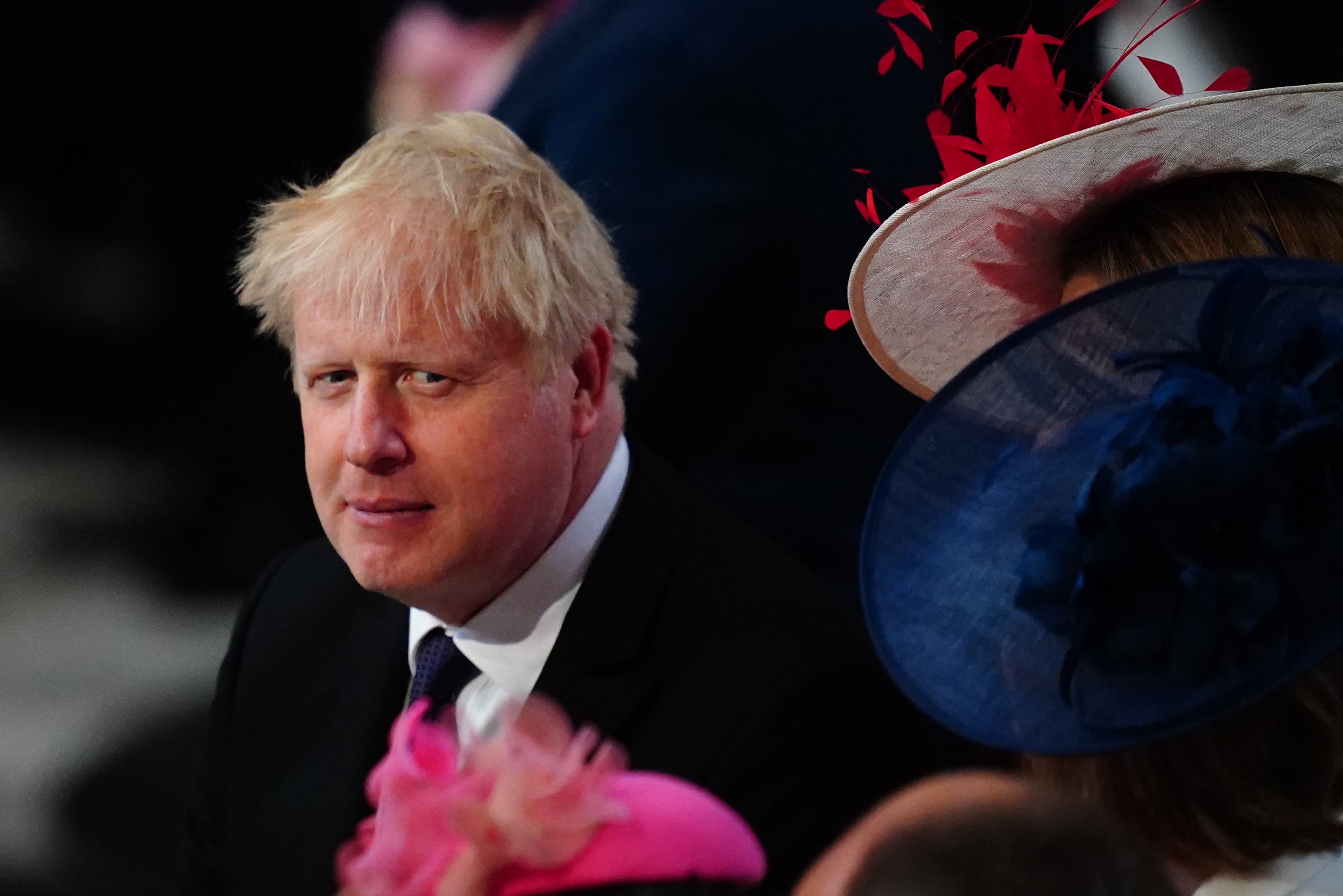Sleaze, U-turns and falling polls behind push for vote on Johnson’s future
Anger over partygate is not the only factor behind declining support for the Prime Minister among his own MPs.

The Sue Gray report may have provided the catalyst for Monday evening’s vote of confidence in Boris Johnson, but Conservative grievances with the Prime Minister stretch back much further.
Those problems began with a different row over standards in public life and Mr Johnson’s handling of the Owen Paterson lobbying scandal.
The Prime Minister at first backed Mr Paterson after the House of Commons Standards Committee found him guilty of breaching rules on paid lobbying by MPs, and whipped Conservatives to support an overhaul of the standards system rather than suspend Mr Paterson from the House.
Just 24 hours later, Mr Johnson had U-turned in the face of public anger, but the focus of the press and public was now on standards and a succession of further damaging stories followed that resurrected the accusations of “sleaze” that plagued the last days of John Major’s premiership.
These included the revelations of partygate, described by former Treasury minister Jesse Norman on Monday as demonstrating “a culture of casual law-breaking at 10 Downing Street”.
But there have also been questions from Downing Street standards chief Lord Geidt over the refurbishment of Mr Johnson’s flat at Number 10 and, later, the response to the Gray report, along with criticism from the public of Conservative MPs’ second jobs.
Many MPs have referred explicitly to partygate and the Prime Minister’s own behaviour when calling for a confidence vote, especially following the release of the Sue Gray report.
But, as Mr Norman’s letter on Monday made clear, policy issues have also played a role in bringing some MPs to call for the Prime Minister’s resignation.
Mr Norman picked out a number of specific issues – proposals to tear up the Northern Ireland Protocol, plans to send asylum seekers to Rwanda, the privatisation of Channel 4 and the recent ban on “noisy protest” – that might have riled the more liberal “one nation” wing of the party frustrated by the Government’s pursuit of “culture wars”.
But there has also been criticism from hardliners as well, primarily over tax.
The increase in national insurance, bringing the tax burden to its highest point in 70 years, and the imposition of a windfall tax on oil and gas companies have not sat well with more Thatcherite MPs.
Meanwhile, several backbenchers have reportedly been frustrated by an apparent lack of direction, demonstrated by repeated U-turns on policy.
These include the imposition of the windfall tax, the row over sewage discharges into lakes and rivers towards the end of 2021, excluding trans people from a ban on conversion therapy, reforming the planning system, cutting foreign aid to 0.5% of national income and scrapping the pensions triple lock.
This lack of direction was highlighted by Mr Norman, who said the Government “seems to lack a sense of mission”, and has contributed to discontent with the Prime Minister from different wings of the Conservative Party.
Finally, there are the electoral implications of Mr Johnson’s continued leadership.
Labour has maintained a consistent poll lead over the Conservatives since the start of the year while, for some southern Tories, the Liberal Democrats look increasingly threatening after by-elections in Chesham and Amersham and North Shropshire.
A recent YouGov poll forecasting more than 80 Conservative losses in “battleground” seats – including the Prime Minister’s own constituency – may have led some MPs to conclude that the best chance of saving their jobs is to get rid of Mr Johnson.
Bookmark popover
Removed from bookmarks